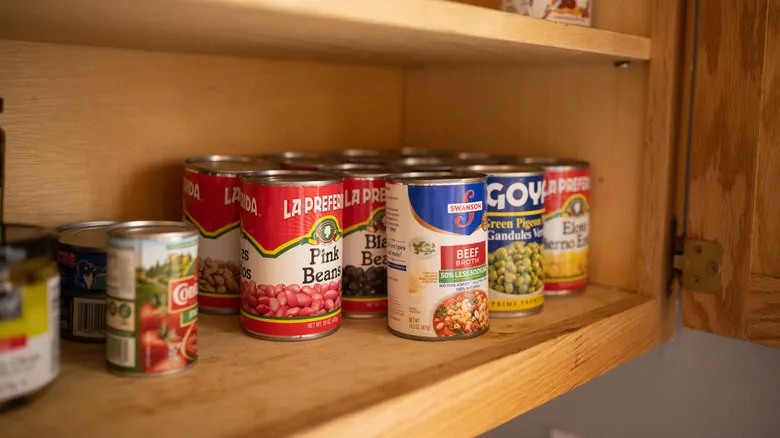Do store canned potatoes
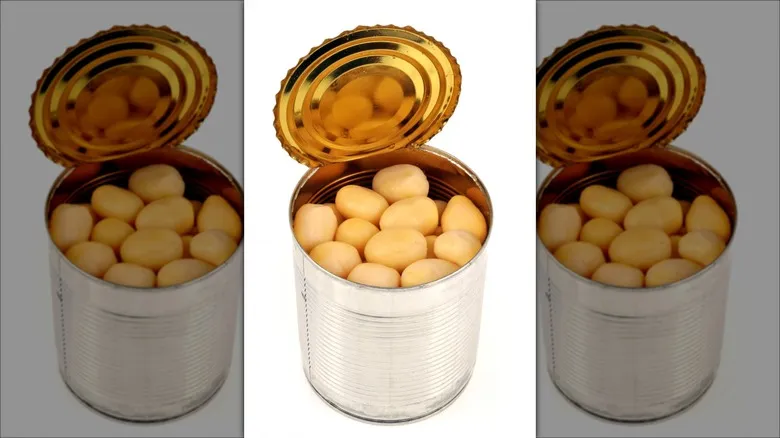
Potatoes are a fundamental food item, serving as a key ingredient in numerous beloved dishes, such as your go-to scalloped potatoes recipe. For this reason, many people keep them stocked in their pantry, as a quick meal is just a can opener away.
However, if you're aiming to build a pantry that can sustain you for at least six months, fresh potatoes may not be the best choice. This is where canned potatoes come in handy. Unlike fresh potatoes, which typically have a shelf life of about two months, canned potatoes can last for several years—usually a minimum of two to three years.
Many individuals are concerned about expiration or "best by" dates. While it's true that the closer you are to these dates when you open the can, the fresher the food will taste, most canned potatoes remain safe to eat even after the expiration date has passed. For this reason, they are an excellent option for stocking a pantry with foods that will last six months or longer.
Don't store extra mayo
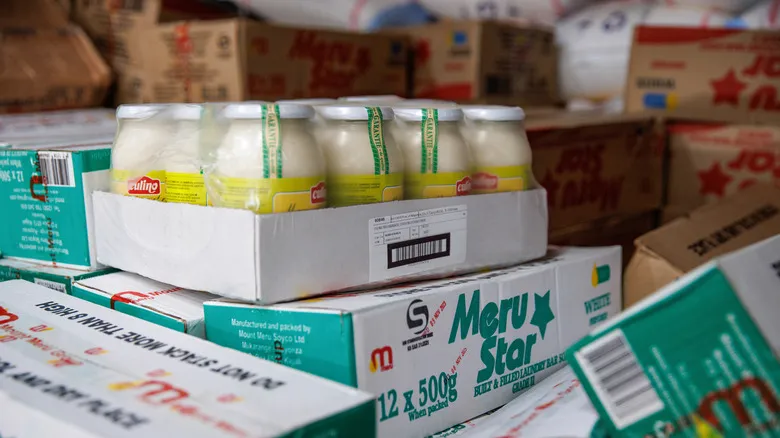
Who can envision a delicious tuna sandwich without a generous helping of zesty mayo? This is why many people stock up on extra jars of mayo in their pantry, believing it stays fresh as long as it's unopened. While mayo does contain shelf-stable ingredients like vinegar, salt, and sugar, it also has eggs, which can spoil even in a sealed jar. Some food experts argue that the canning process may stabilize the eggs, but there is some debate on this matter, so it's wise to err on the side of caution.
This doesn't mean you can't store extra mayo in your pantry; it just means you should consume it within a reasonable timeframe and avoid keeping more than you can use. Additionally, once you open a jar of mayo, it must be refrigerated, where it will remain good for a couple of weeks—so be sure to monitor it.
Lastly, if you've opened your mayo and accidentally left it out overnight, it's best to discard it. It likely entered the danger zone of 40°F to 140°F, where the risk of foodborne illness due to bacterial growth increases significantly.
Do keep canned tuna and other canned meats
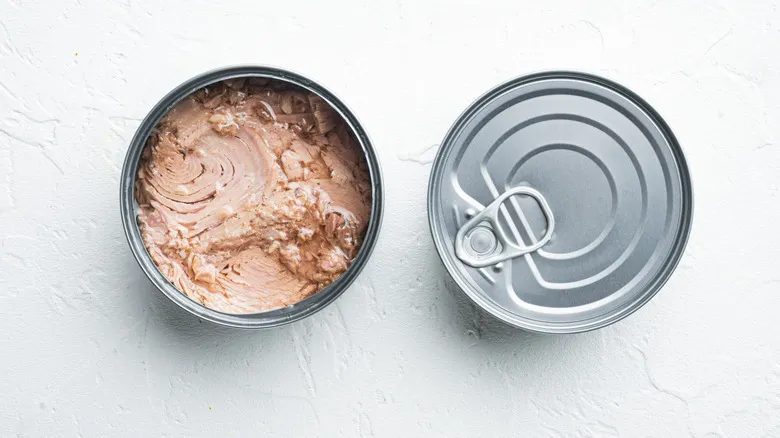
When the electricity goes out, it's essential to have food in your pantry that requires no cooking. That's why canned tuna is an excellent pantry essential. With just a simple handheld can opener, a few condiments or even an avocado, and some bread, you can whip up a sandwich. But the advantages of canned tuna extend beyond that. Home cooks recognize it as a key ingredient in budget-friendly meals, such as tuna casserole.
In emergencies, it's advisable to have 5½ ounces of canned meat or plant-based protein on hand each day. Since a typical can of tuna contains about 5 ounces, one can nearly fulfills your daily requirement. Additionally, tuna is rich in B vitamins, including B12, omega-3 fatty acids, and a significant source of vitamin D. This should help keep you healthy during the initial days of a zombie apocalypse.
Regarding its longevity in your pantry, tuna is a reliable choice. An unopened, undamaged can of tuna can last in your cupboard for anywhere from two to five years.
Don't store canned tomatoes longer than a year
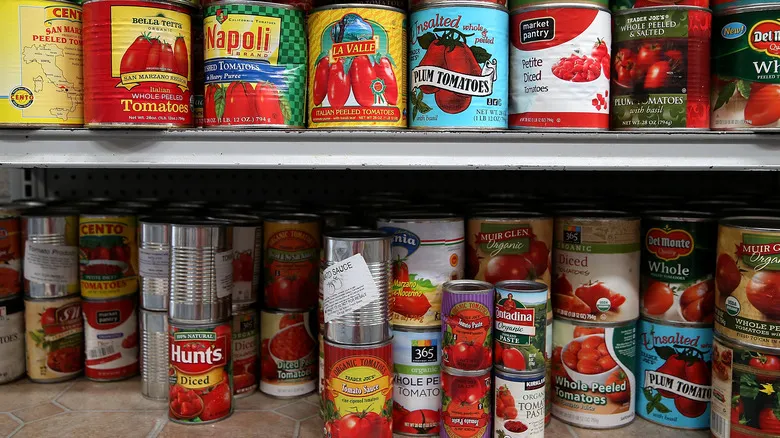
The acidity in your tomatoes acts like a tiny chemistry lab that gradually deteriorates the cans from the inside. While this may be a bit of an exaggeration, there is some truth to it. In other words, you can store canned tomatoes in your pantry, but it's advisable not to keep them for more than a year, as the acid can corrode the can over time. If you're stocking up on pantry items for six months or longer and wish to include canned tomatoes, it's best to start with fresh cans at the beginning of that period.
There is some debate regarding how long canned tomatoes can be stored in the pantry. Some food storage specialists suggest they can last up to 24 months. However, due to the potential for acidic corrosion, it's wise to err on the side of caution. If you notice any cans that emit a foul odor, have developed leaks, or give the impression that their contents are no longer safe, it's best to dispose of them.
Do stock canned corn
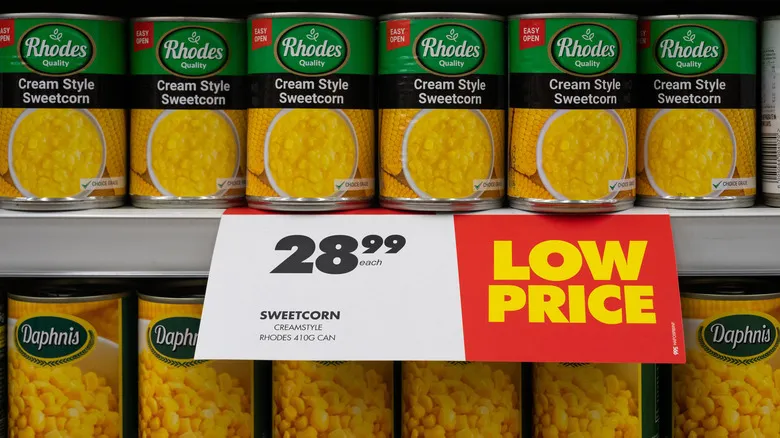
It is often claimed that canned vegetables offer the same nutritional benefits as their fresh or frozen equivalents. However, the flavor and texture of canned vegetables frequently leave much to be desired. Many tend to be mushy, bland, overly salty, or generally inferior. Among canned vegetables, corn stands out for having a taste and texture that closely resembles that of fresh or frozen corn, making it a great pantry staple.
There’s more good news, too. In addition to preserving its flavor, canned corn has a long shelf life. When stored at 40°F, it can last for five to six years. It is also a good source of vitamin A, along with various minerals and carbohydrates. Plus, it features in some delicious recipes that can be made straight from the pantry, such as corn chowder or corn casserole. Lastly, since canned corn is already cooked, it only requires heating when you're in a hurry.
Don't stockpile canned citrus
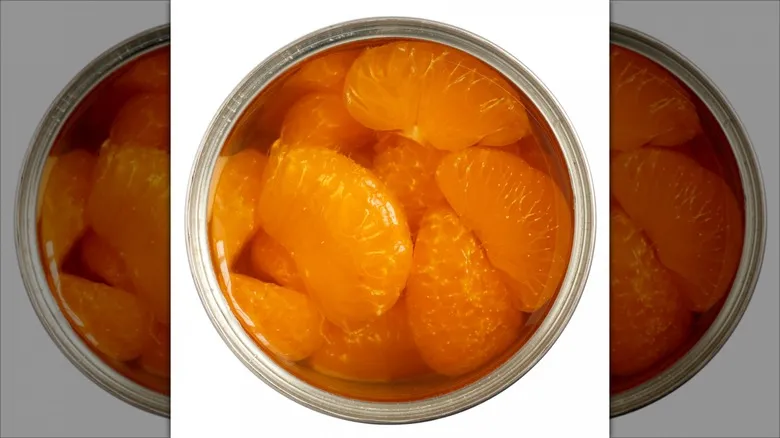
Foods with high acidity, such as canned oranges or grapefruit, can have effects similar to those of canned tomatoes. Although metal cans are lined with plastic, this lining can deteriorate over time, becoming less effective. Eventually, the acids in the food can react with the metal of the can. This is why it's advisable to consume any type of canned citrus fruit within 12 months of placing it in your pantry. The interaction between the can and the food's acidity can alter the texture and flavor over the years. In addition to diminishing the taste of your canned grapefruit or oranges, this process also reduces their nutritional value.
These canned items fall into a gray area; if you intend to eat them within a year, they meet the six-month guideline mentioned earlier in this article. The uncertainty arises if you're unaware of when the food was canned. You might be nearing the expiration of the "best by" date without realizing it, especially if the label has been damaged. If you're uncertain, it may be wiser to discard the can.
Do stash canned milk
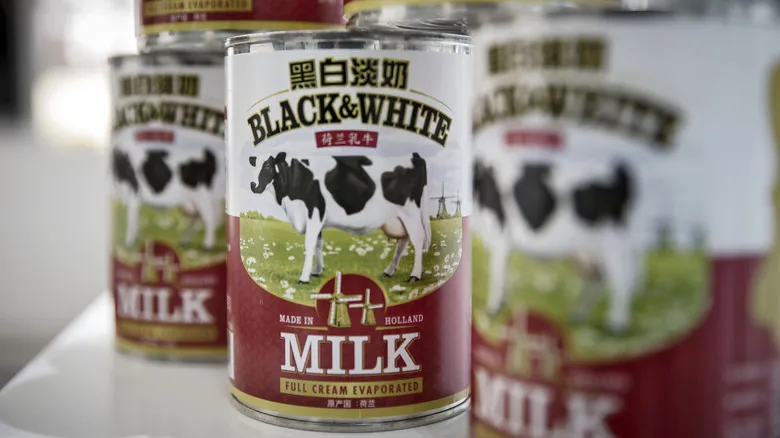
It's easy to overlook essentials like milk until you're out of it. This was the inspiration behind the iconic "Got Milk" commercials featuring celebrities sporting milk mustaches. Canned milk guarantees that you always have milk available for your cereal, morning coffee, and beloved mac and cheese recipes. You won't have to worry about meeting the recommended three cups of milk a day, even in a pinch. Plus, if your refrigerator loses power for a time, you'll still have milk on hand.
When stored correctly, canned milk can last up to six months on the shelf. And it's not just regular canned milk that you should keep stocked. Sweetened condensed milk is another great item to have in your pantry. It opens up the possibility of making delicious desserts like Oreo cheesecake, whether you're looking to enjoy a cozy day indoors or celebrate a special occasion.
Don't hold on to cans of food that are severely bent or broken
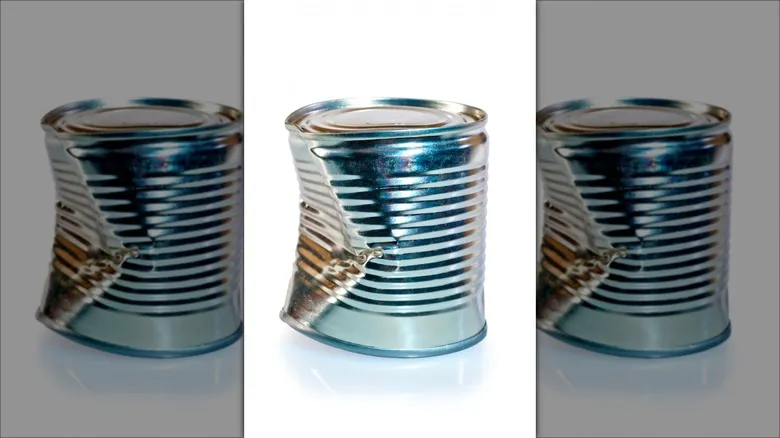
Avoiding dented cans in your pantry is more crucial than simply maintaining an attractive appearance. While some minor dents may not pose a risk, severely damaged cans can lead to significant issues, with aesthetics being the least of your concerns. Deeply dented cans can develop punctures, which allow bacteria to enter. Consuming food contaminated by bacteria can result in spoiled food at best and food poisoning at worst.
Moreover, if the dent is located on the lid, sharp edges may form, potentially causing cuts to your fingers. Given these risks, the United States Department of Agriculture advises discarding cans with dents larger than the depth of your finger, as the likelihood of leakage from such dents is too high.
Do make room for canned sauces

Cooking on a budget calls for ingenuity, and ready-made canned sauces are a perfect solution. While preparing meals from scratch may seem preferable, it does come with its challenges. If you don’t have all the necessary ingredients for your favorite dishes, including spices and herbs, creating something entirely from scratch can be difficult.
Canned sauces offer the benefit of being pre-seasoned, which means you can enjoy more flavorful, complete meals without investing too much time or effort. They also add moisture to your dishes, enhancing the overall dining experience. To put it in perspective, stocking your spice rack can cost at least $50. However, with the variety that canned sauces provide, you won’t feel as pressured to purchase spices that may be out of your budget.
Additionally, they make meal preparation incredibly quick. It’s easy to cook some pasta and simply pour a can of marinara sauce over it. Sauces like marinara can be stored in your pantry for up to 24 months, giving you plenty of meal options for an extended period.
Don't rely on canned nuts
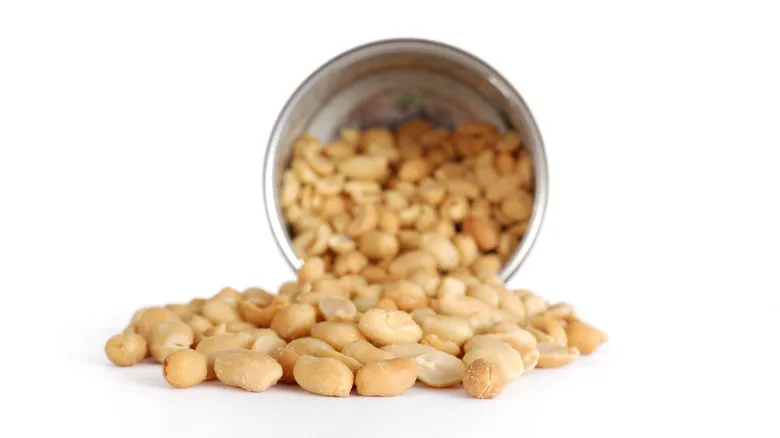
Nuts don't last as long as many people think. Shelled nuts typically remain fresh for four to six months, while those still in their shells can last up to nine months. This technically places them within the six-month timeframe. However, nuts come with some significant issues that make them less suitable for pantry storage than commonly believed. They can develop mold, shrivel up, and attract pantry pests. Yes, you read that correctly—tiny insects can invade nuts and treat them like a holiday feast.
Additionally, nuts can absorb odors, such as that of house paint. This doesn't mean your pantry has become a paint store; rather, it indicates that your nuts have gone rancid. If you purchased them from a bulk bin at the grocery store, this is especially likely, as the frequent opening and closing of the bin allows oxygen to enter, accelerating the aging and spoilage process.
It's worth noting that while many people keep their nut-filled trail mix in the cupboard, the pantry isn't the ideal storage place. Nuts fare much better in the fridge or freezer, where they can last up to two years. So, if you're seeking shelf-stable items that will last six months or more, it's best to skip the pantry for nuts and store them in the refrigerator instead.
Do embrace nut butters
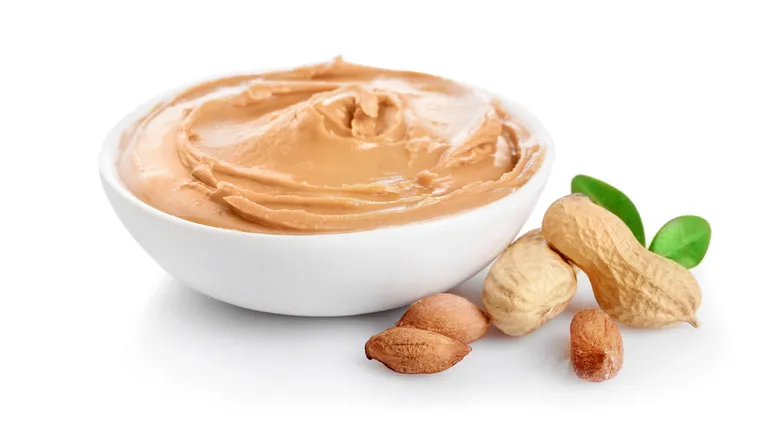
It's hard to imagine a pantry stocked with essential food staples without nut butters. While peanut butter is a classic choice, there are now many more options available, such as cashew and almond butter. These alternatives can bring a unique flavor to even the most familiar recipes, like peanut butter and jelly sandwiches—though, of course, it wouldn't be peanut butter in that case, but rather your preferred nut butter.
You can expect your unopened jar of peanut butter or cashew butter to last for at least 24 months. However, once opened, you should consume it within about three months. The long shelf life of peanut butter is due to its fat content and low moisture levels.
One important point to consider is that natural nut butters, which lack preservatives, don't last as long as their more processed versions, so it's best to enjoy them within a couple of months. To extend the shelf life of all nut butters, you can store them in the refrigerator after opening.
Don't indulge too much in high-sodium products
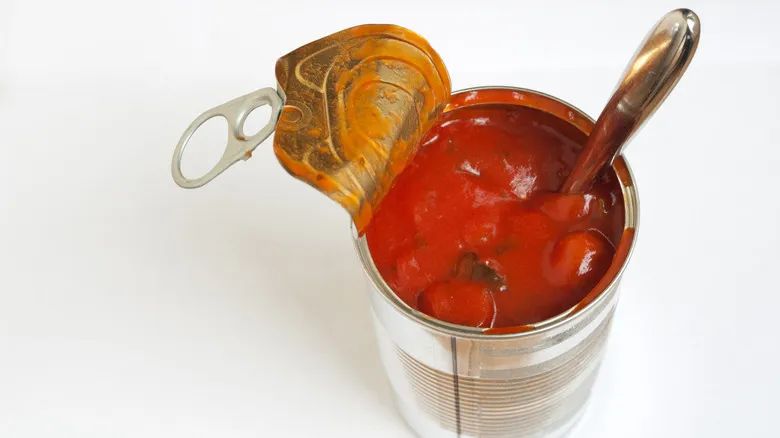
From the perspective of comfort food recipes, few dishes evoke the same emotional response as soup. Beneath their pop-top lids lies the promise of nostalgic comfort and a sense of security that only soup can provide. For many, soup is a staple in a well-stocked pantry, with cans offering the potential for meals that can last for years.
However, while soup and certain other canned goods, like canned meats, meet the criteria for long-lasting pantry staples, they come with a significant drawback: high sodium content. The abundance of salt in canned foods serves a practical purpose, as it is one of the most common preservatives available. This is why soups and other sodium-rich items, such as canned meats, can remain on shelves for extended periods.
Nevertheless, excessive sodium intake has been linked to various health issues, including high blood pressure, heart problems, obesity, and certain cancers. If you feel the need to include soup (or any other high-sodium canned food) in your diet, consider balancing it out by incorporating other lower-sodium options into your six-month pantry as well.
Do include canned beans
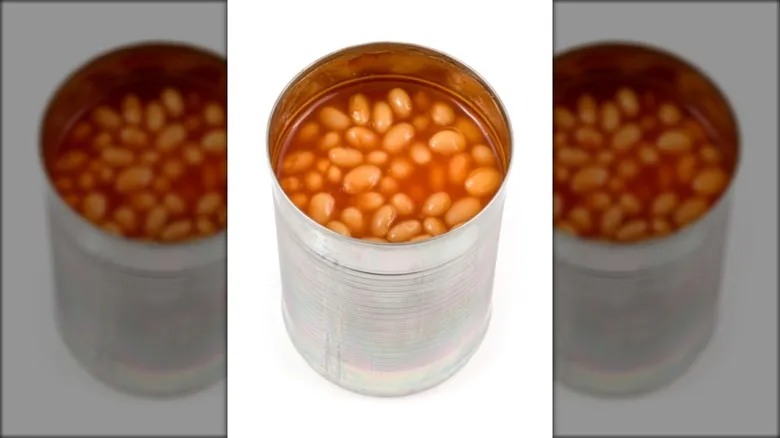
From a strictly economic perspective, it's wise to stock your pantry with bags of dried beans, such as black beans, kidney beans, and white beans. However, they do have a significant drawback: they require soaking and lengthy cooking times before they can be consumed. In the event of a power outage, if these are your only food options, you may find yourself in a tough situation.
To address this issue, keeping canned beans in your pantry is a practical solution. They are pre-cooked and can be easily heated on a propane stove or in a solar-powered cooking pot. Since they are soft right out of the can, you won’t have to wait hours to enjoy a meal. Canned beans serve as an excellent base for stews and can be quickly added to corn or flour tortillas for a fast taco option. Pinto beans, in particular, are versatile; when blended, they transform into refried beans in just a few minutes. Plus, they have a shelf life of up to two years, giving you ample time to experiment with those recipes you've been saving on your phone.
Don't rely on home canned stuff
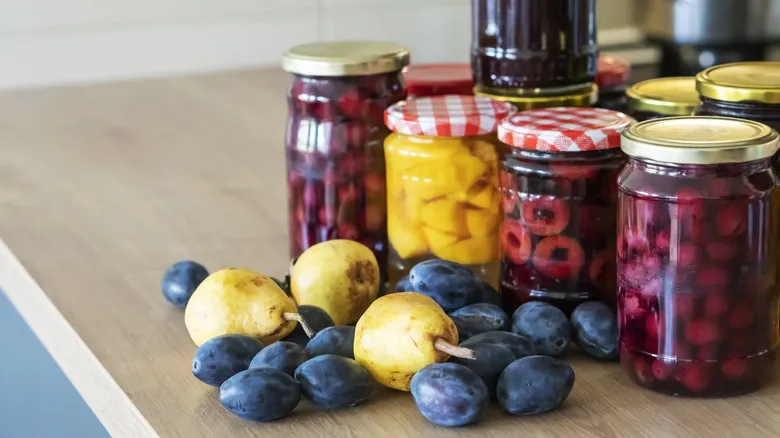
Thanks to the rising popularity of the homestead movement, many individuals have begun cultivating gardens and preserving their harvests through canning. This is a wise choice. However, it can create a misleading sense of security regarding the storage of home-canned goods in the pantry. In reality, some home-canned foods, regardless of whether they contain homegrown ingredients, should not be kept in the pantry at all, especially not for six months.
The reasoning behind this is that certain foods, even when canned, can spoil quickly. They may also harbor harmful microorganisms, such as Clostridium botulinum, which can lead to serious illness.
For instance, homemade pesto from your grandmother's recipe or herb-infused oils are examples of items you might find in your pantry. Dairy products don’t fare much better; when kept at room temperature, they can also trigger a botulism outbreak. If you consider canning cake or bread, you would risk botulism from those as well. Other home-canned foods that should not be stored in the pantry due to the risk of spoilage or microbial growth include eggs, starches like pasta or rice, and thick purees.
Recommended
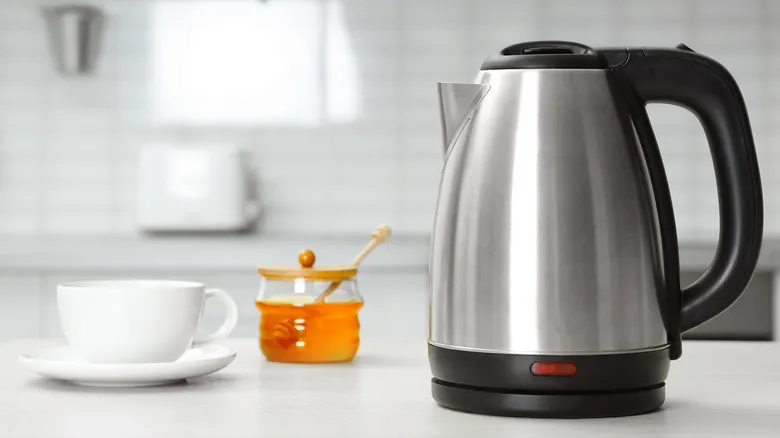
Your Electric Kettle Can Clean Itself With One Simple Solution
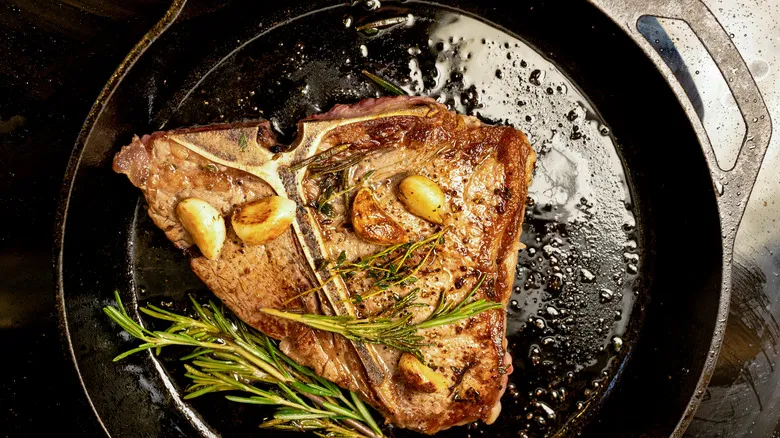
15 Myths About Cast Iron Skillets, Debunked
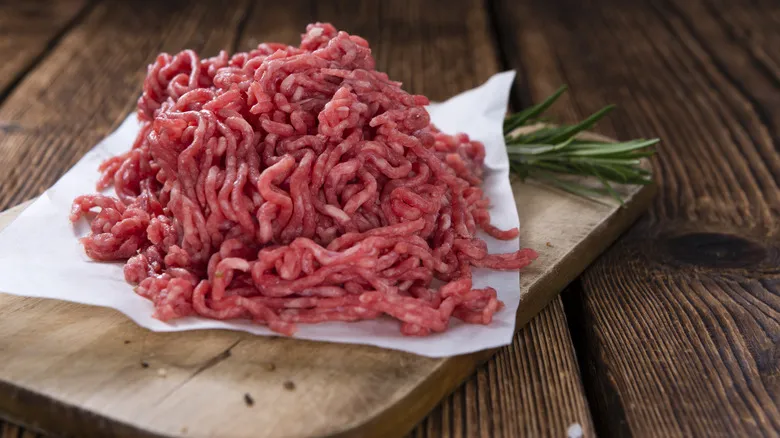
Why Ground Meat Spoils Faster Than Standard Cuts
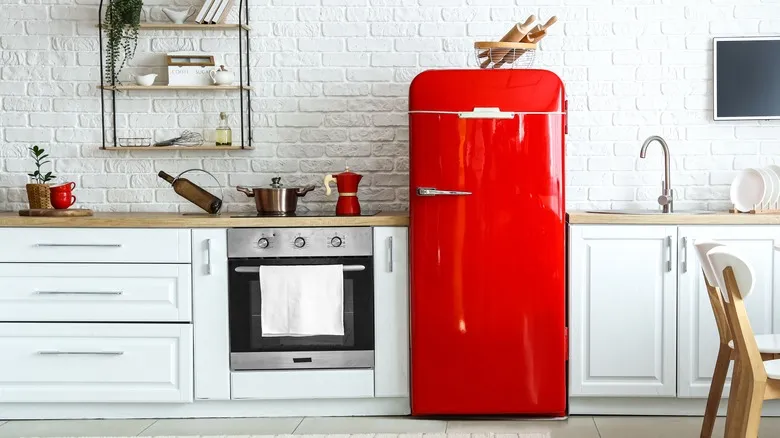
The Temperature Sweet Spot To Keep Your Refrigerator At
Next up

